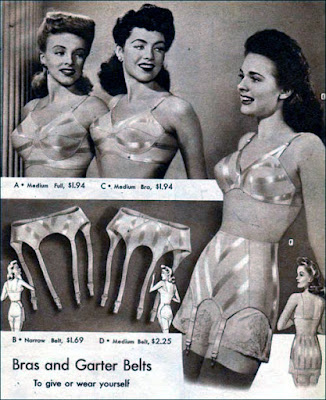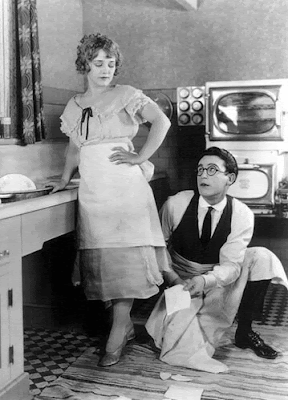PIERS
MORGAN: You're right, Meghan, confronting inequality is uncomfortable – but not
as uncomfortable as watching unemployed Harry lecturing the world about it from
the comfort of your Hollywood mansion
hideaway
Published: 09:06 EDT, 7 July 2020 | Updated: 09:29 EDT, 7 July
2020
I've seen less
disconcerting hostage videos.
That was my
thought this morning as I watched Prince Harry
staring blankly into a camera and lecturing the world – yet again - on our need
to face up to our privilege.
As he spoke about
why we all have to right the wrongs of the past, his wife Meghan stared
intently at him, boring her eyes into his skull as if she was virtually
transporting her own pre-programmed thought processes into his brain.
I'm not a
conspiracy theorist but at one stage it looked like his lips were moving in
sync with her blinking eyes.
We're going to
have to be a little uncomfortable right now,' said Meghan when she herself
spoke.
No s***.
She continued:
'Because it's only in pushing through that discomfort that we get to the other
side of this and find the place where a high tide raises all ships.'
This sounded very
profound.
Then I remembered
where I'd heard it before.
President John F.
Kennedy famously said the words 'a rising tide lifts all boats' in a 1963
speech.
Meghan just
forgot to credit him.
An easy mistake,
perhaps, when you're desperate to impress everyone with the power of your own
world-changing rhetoric.
What was even
less palatable than her linguistic plagiarism was Meghan's next claim:
'Equality does not put anyone on the back foot, it puts us all on the same
footing - which is a fundamental human right.'
The essence of
this assertion is entirely correct.
But there's
something quite breathtakingly unedifying about a very rich deeply privileged
Duchess banging on about equality from her $20 million borrowed mansion in Hollywood.
One of the few
benefits of the coronavirus crisis has been that fame-hungry attention-seeking
narcissistic celebrities have been put firmly back in their boxes.
From Madonna
sitting naked in the rose-petalled bath of her lavish home as she told us
COVID-19 was 'the great equaliser', to Gal Gadot's grotesquely tone-deaf
annihilation of Imagine with a bunch of other tuneless virtue-signalling stars,
the pandemic has exposed the utter irrelevance of celebrity culture when
there's a killer virus on the loose.
For Meghan and
Harry, this moment of reckoning has come at a particularly awkward time.
Six months ago,
they quit the Royal Family and Britain in a blaze of aggrieved self-righteous glory - and
announced big plans to be newly liberated global superstars, trading off their
royal titles to make themselves enormously rich.
We were informed
that they had 'never been happier' and were 'very excited' about their new
lives of freedom from control by evil racist palace courtiers and the even more
evil racist UK media.
It was a
spectacular two-fingered snub to the Queen and the Monarchy, and to all the
British taxpayers who had funded their lavish lifestyle.
And for a few
weeks they were one of the most discussed and debated news stories in the
world, dominating newspaper headlines and TV bulletins – all fuelling their
superstar status.
But then came the
biggest health crisis for a century, and suddenly we all forgot about them with
the same speed that all their big plans for global domination got cancelled.
Meghan and
Harry's terrible 'struggle' that they'd spent months moaning about was now put
sharply into perspective by horrendous, chaotic scenes at hospitals around the
world as heroic health workers risked their lives to save people infected by
the disease.
Frankly, as Rhett
Butler might say, we didn't give a damn about them or any other self-absorbed
celebrities.
The REAL stars
were the doctors and nurses on the Covid frontline.
As the threat of
lockdown loomed, the Sussexes faced a dilemma: should they return to the UK from their vast Canadian riverside hideaway so
Harry could help his family support the British people in our darkest hour
since World War II?
Or should they
hop on a private jet to Los Angeles?
They chose the
latter, decamping to the sprawling $20 million Hollywood home of American actor Tyler Perry.
And that is where
they have stayed ever since.
The house is an
eight-bedroom, 12-bathroom Tuscan-style villa, which sits on 22 acres on the
top of a hill in the ultra-exclusive Beverly Ridge Estates guard-gated
community, offering sweeping views of the city from the backyard and with a
massive swimming pool as its centrepiece feature.
It's hard to
imagine a more luxurious or spacious place to spend lockdown.
Or a more
incongruous place from which to lecture the world on equality.
'It's not going
to be easy,' said Harry, 'and in some cases it's not going to be comfortable -
but it needs to be done, because guess what, everybody benefits.'
Hmmm.
Again, there's
nothing inaccurate about that statement, especially when applied to racism.
(Though his
direct attack on the Commonwealth for its racist colonial wrongs suggests a
poor grasp of history given it was formed in 1932 to bring an end to the
British Empire and make amends for all the racist colonial wrongs with the
British Empire.)
But there's
something horribly inappropriate about it coming from a jobless prince sitting
in a Hollywood mansion, living off his father's money and still reportedly
using British taxpayer cash to fund his family's very expensive security costs.
In fact, it's
hard to think of a more privileged, elitist life than the one they're now
currently living – one that has all the luxury and glamour of royal life
without the need to perform any of the duty.
I really didn't
want to write about Meghan and Harry today.
I've managed to
avoid it for four months and know there genuinely are far more important things
to worry about.
But by making
such overtly controversial political pronouncements, they are deliberately
forcing themselves back into the news cycle and that makes it impossible to
ignore them.
Their latest
outburst follows last week's extraordinary revelations by Meghan in court
documents filed in her privacy case against the Mail On Sunday.
She claimed, with
zero evidence and quite staggering delusion, that her wedding to Harry made
$1.2 billion in tourism cash so more than paid for itself.
She said she was
'unprotected' by the 'institution' of the Royal Family and was unhappy she
couldn't take paid work like minor royals including Princesses Beatrice and
Eugenie - who don't carry out public duties, so the comparison is completely
irrelevant.
She complained
that the Palace didn't correct 'hundreds of thousands of inaccurate articles'
about her, which is a laughably exaggeration and, as Palace sources responded,
the Duchess didn't seem to understand the difference between untrue stories and
negative critical ones that were true.
But honestly, who
cares about any of this trivial first world bleating when so many people are
losing their lives and livelihoods?
In several weeks,
a new biography of the couple, written by friends to 'correct' all the supposed
myths about them, will be published and doubtless spray more dirt at the Royal
Family, causing further embarrassment and upset for the Queen in her 94th year.
None of this sits
well with Meghan and Harry's claim when they quit the Royals that they were
doing so for the sake of privacy.
It's now clear
that this pair of royal renegades have no intention of remaining 'private' and
every intention of continuing to lecture us how to think and behave from behind
the protected walls of their gilded new Hollywood life.
This wouldn't
matter so much if people weren't suffering so badly from the terrible impact of
the coronavirus and the horrific economic fallout as a consequence.
The last thing
people want to hear right now is yet more whining from Meghan and Harry about
how badly they've been treated, yet more digs at the Queen and other members of
the Royal Family like William and Kate who have stepped up so commendably to
comfort the British people during the pandemic, and yet more of their haughty,
patronising, hypocritical sermons about equality.
So, before I
return to more important things, three final words of advice for the Duke and
Duchess: please shut up.
(Please note! I don't own this material and am re-posting it here for educational purposes only, and because Piers Morgan KICKS ASS.)







































